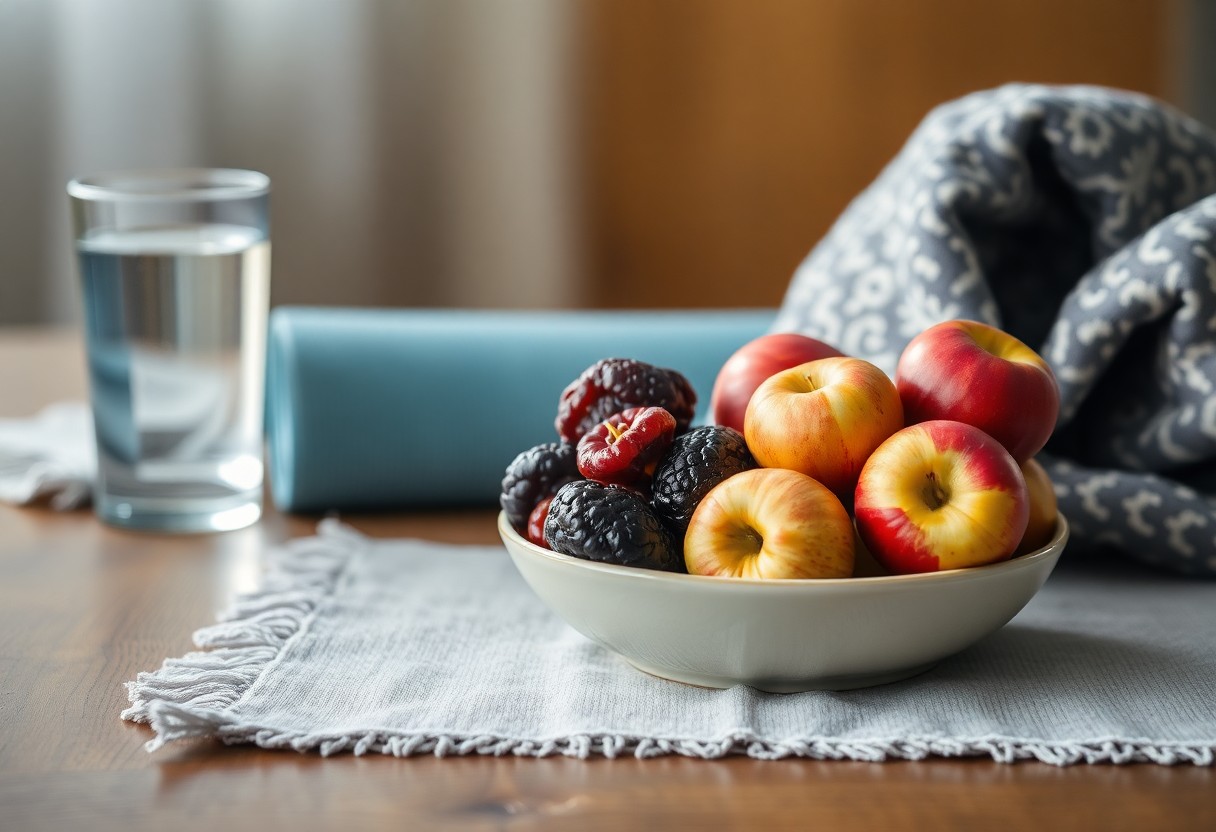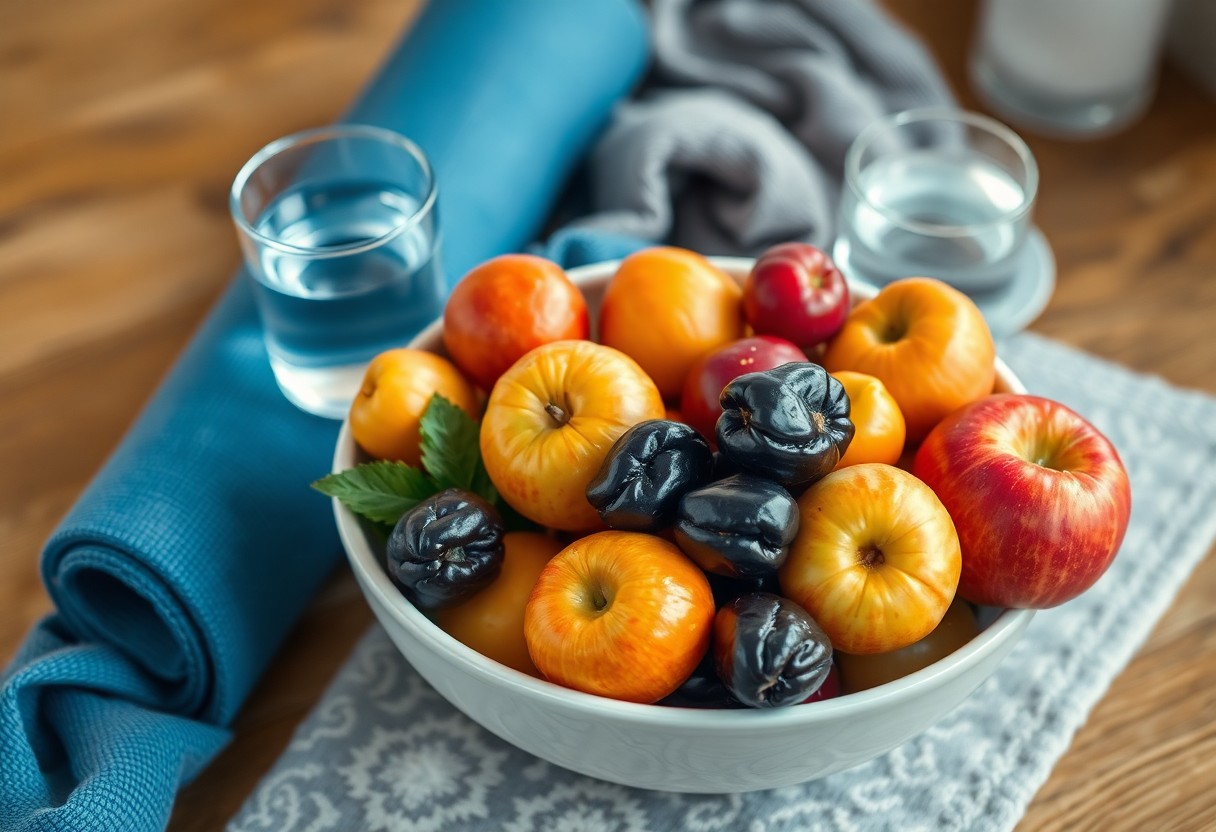Many people experience constipation at some point in their lives, leading to discomfort and frustration. Fortunately, there are effective home remedies that can alleviate this issue and promote digestive wellness. In this guide, you’ll discover practical tips to improve your bowel health, including dietary adjustments, hydration strategies, and exercise recommendations. By incorporating these simple yet effective methods into your routine, you can find relief and enhance your overall wellness. Explore these insights from Houston Methodist Health to reclaim your comfort and well-being.

Understanding Constipation
To understand constipation, it’s important to look at its definition, common causes, and telltale symptoms. This condition affects many individuals and can significantly impact your daily life, including your overall wellness. By recognizing the factors that contribute to constipation, you can take effective steps to manage and alleviate it.
Definition of Constipation
Definition: Constipation is generally defined as having fewer than three bowel movements per week, accompanied by discomfort or difficulty in passing stool. It can lead to feelings of bloating, abdominal pain, and straining during a bowel movement, making it a frustrating experience.
Common Causes
Any disruption in your normal digestive routine can lead to constipation. Factors like a low-fiber diet, inadequate hydration, and a sedentary lifestyle are among the top culprits. Medications, particularly certain pain relievers and antidepressants, can also contribute to this condition. Additionally, underlying health issues, such as irritable bowel syndrome (IBS), can play a role, making it important to assess your situation to identify potential causes.
Considering these factors, it’s vital to analyze your daily habits and dietary choices. For instance, only about 7% of adults meet the recommended daily fiber intake of 20-30 grams, which can significantly affect your bowel health. Lack of physical activity further complicates matters, as regular exercise is known to help stimulate intestinal function.
Symptoms to Look Out For
By being aware of the symptoms of constipation, you can take proactive measures to address it. Common signs include infrequent bowel movements, hard or lumpy stools, and abdominal discomfort. These symptoms can significantly affect your health, so it’s vital to monitor them regularly.
In addition to the primary symptoms, you may also experience bloating, nausea, and loss of appetite, which can affect your overall quality of life. If you’re experiencing these symptoms for an extended period or if they worsen, it may be time to consult a healthcare professional for further evaluation and guidance on effective treatment options.
Importance of Dietary Fiber
Now, dietary fiber plays a vital role in maintaining your digestive health. It helps in the smooth passage of food through your gastrointestinal tract, preventing constipation and promoting regular bowel movements. By incorporating sufficient fiber into your diet, you can keep your digestive system functioning optimally and avoid the discomfort associated with irregular bowel movements.
Role of Fiber in Digestive Health
Any type of fiber can benefit your digestive system, as it adds bulk to your stool and aids in its movement through the intestines. Soluble fiber dissolves in water to form a gel-like substance, which helps soften the stool, while insoluble fiber adds bulk and helps food pass more quickly through your digestive system. Both types are imperative for keeping your gut happy and healthy.
Recommended Daily Intake
Fiber intake varies based on your gender and age, with men typically needing about 30 grams per day and women requiring 20-25 grams. However, many adults fall short, as only about 7% meet these recommendations, according to the American Society for Nutrition.
Dietary guidelines encourage you to aim for the recommended daily intake to support your digestive health. Incorporating more fiber-rich foods not only aids in preventing constipation but also enhances overall wellness. Ensuring you get enough fiber each day can significantly improve your bowel regularity and general health.
High-Fiber Foods to Include
Against all odds, adding high-fiber foods to your meals can transform your digestive health. Opt for fresh fruits, vegetables, whole grains, beans, and nuts, as they are excellent sources of fiber that can help you achieve your daily goals and improve your bowel function.
Also, consider incorporating foods like squashes, broccoli, kiwis, and lentils into your meals. These nutrient-dense foods provide fiber imperative for maintaining regular bowel movements and preventing constipation. Making these foods a staple in your diet can lead to significant improvements in your digestive health and overall wellness.
Hydration: The Key to Relief
All too often, we overlook the simple yet vital role hydration plays in maintaining digestive health. When you’re dealing with constipation, staying adequately hydrated can significantly aid in softening stool and promoting regular bowel movements. Dr. Neeharika Kalakota recommends increasing your fluid intake to at least 64 ounces per day, unless advised otherwise by your healthcare provider.
Importance of Water Intake
The body requires sufficient water to function optimally, particularly when it comes to digestion. Inadequate hydration can exacerbate constipation by hardening stool, making it more difficult to pass. When you maintain proper hydration, you help to ensure that your gastrointestinal tract remains efficient.
Tips for Staying Hydrated
With some simple strategies, you can easily boost your daily water intake. Consider the following tips:
- Carry a water bottle with you for easy access to hydration throughout the day.
- Drink a glass of water with every meal and snack.
- Flavor your water with fruits, vegetables, or herbs for added appeal.
- Choose hydrating snacks, such as cucumbers or watermelon.
This can make maintaining your hydration more enjoyable and effective.
For instance, setting reminders on your phone or incorporating water-rich beverages into your daily routine can help you stay on track. Additionally, you might find that drinking herbal teas or infusing your water with flavors makes it easier to meet your hydration goals.
- Try to consume at least one or two cups of caffeinated beverages, but be mindful as caffeine can be dehydrating.
- Rotate your water with other healthy drinks like coconut water or diluted fruit juices.
- Utilize hydration tracking apps to monitor your intake.
This way, you can keep hydration a priority as part of your holistic approach to wellness.
Foods with High Water Content
An often-overlooked aspect of hydration is the role of certain foods that are naturally high in water content. Incorporating these foods into your diet can contribute significantly to your overall fluid intake and provide additional nutrients imperative for digestive health.
Intake of water-rich foods can complement your daily hydration efforts. Vegetables like cucumbers and leafy greens, as well as fruits such as watermelon and oranges, can all help keep you hydrated. Including these foods will not only quench your thirst but also enrich your diet with imperative vitamins and minerals.
The Role of Physical Activity
Once again, incorporating regular physical activity into your routine can significantly aid in relieving constipation. Engaging in exercise not only improves overall wellness and health but also stimulates the gut, making bowel movements more regular and manageable. It’s important to understand how exercise impacts your digestive system and what types of activities you can include in your daily life.
How Exercise Affects Bowel Movements
Along with enhancing your overall health, exercise plays a vital role in promoting bowel function. Physical activity increases the speed of food passage through the intestines and helps to reduce bloating and discomfort that often accompany constipation. By engaging in regular movement, you can encourage your digestive system to work more efficiently.
Recommended Exercise Guidelines
Guidelines suggest that adults should aim for at least 150 minutes of moderate-intensity exercise each week. This can be broken down into manageable sessions throughout the week, allowing you to find a routine that fits your lifestyle. Even slight increases in activity can have a positive impact on your digestion.
Understanding how these guidelines apply to your routine can help you establish a sustainable exercise program. You might consider activities like brisk walking, cycling, or swimming, which not only enhance your well-being but also encourage regular bowel function. Consistency, rather than intensity, is key to tackling constipation effectively.
Simple Exercises to Incorporate
The best part about integrating physical activity into your life is that it doesn’t have to be complicated. Simple exercises such as walking, stretching, and yoga can be effective in relieving constipation. Aim to incorporate short walks after meals or spend a few minutes performing pelvic floor stretches to support digestion.
At home, you can easily fit these activities into your day. Simple changes, like taking the stairs instead of the elevator or setting a timer for short exercise breaks, can promote better digestion. By making these small adjustments, you’ll help your body naturally facilitate smoother bowel movements while also prioritizing your overall wellness and health.

Laxatives: When and How to Use
For those seeking immediate relief from constipation, laxatives can be an effective solution. It’s important to understand the different types available and when to use them to ensure your comfort and health.
Overview of Laxative Types
An effective way to categorize laxatives is by their mechanisms of action. Here are the main types you’ll encounter:
| Type | Description |
| Osmotic Laxatives | These draw water into the intestines to soften stool. |
| Stimulant Laxatives | These stimulate the muscles in the bowel to promote movement. |
| Bulk-forming Laxatives | These increase the size of stool to encourage bowel movements. |
| Lubricant Laxatives | These coat the stool to make it easier to pass. |
| Saline Laxatives | These increase the amount of water in the intestines. |
Knowing these categories helps you choose the right laxative based on your symptoms and preferences.
Osmotic Laxatives
Below are some basics on osmotic laxatives. These are gentler options that draw water into the colon, which helps to soften the stool and make it easier to move through your system.
Due to their mechanism, osmotic laxatives, such as polyethylene glycol, typically come with fewer side effects compared to other options. They can take a couple of days to begin working, so they may not be ideal for quick relief. However, they are often recommended as a first choice for treating constipation effectively and safely.
Stimulant Laxatives
Beside osmotic laxatives, stimulant laxatives can provide a quicker response when you need immediate relief from constipation. They work by speeding up the contractions of the muscles in your intestines.
Hence, this type of laxative typically takes about 6 to 12 hours to act, which makes them suitable for when you need more rapid relief. However, be cautious, as they may lead to unwanted side effects like cramping and diarrhea if used excessively.
Potential Side Effects
Types of side effects vary among different laxative types. While laxatives can be effective, it’s necessary to be aware of potential adverse reactions that could occur.
This can include cramping, bloating, and diarrhea, particularly with stimulant laxatives. Regular use can lead to dependence on these products for bowel movements, so be sure to discuss any concerns with your healthcare provider to ensure a balanced approach to your wellness and health needs.

When to Seek Medical Attention
Despite the various home remedies available to relieve constipation, there are times when you should seek medical attention to ensure your health is not at risk. If your symptoms persist or worsen, it’s important to consult a healthcare professional who can provide further guidance and possibly more effective treatments.
Signs of Chronic Constipation
For many, chronic constipation is defined as having infrequent or painful bowel movements lasting more than four weeks. If you find that dietary changes and over-the-counter medications aren’t bringing relief, this could indicate an underlying issue requiring medical evaluation.
Red Flags for Serious Conditions
For certain signs, such as blood in your stool or severe abdominal pain, it’s crucial to seek immediate medical attention. These symptoms could indicate a more serious underlying health condition, such as gastrointestinal disorders or even colon cancer.
In fact, any sudden changes in your bowel habits, especially if accompanied by other concerning symptoms, warrant a visit to your doctor. Your healthcare provider can evaluate your condition, ensure there are no serious issues at play, and recommend appropriate treatments based on your specific situation.
Consultation Process with a Healthcare Provider
Medical consultations typically begin with a thorough review of your symptoms and medical history. Your healthcare provider may ask about your diet, lifestyle, and any medications you are currently taking that could impact your gastrointestinal health.
Even if your constipation appears to be a simple matter of dietary adjustment, your doctor can offer more tailored recommendations or tests. This step is crucial to rule out any underlying health issues that may require immediate attention, ensuring your overall wellness is protected.
Final Words
Considering all points, addressing constipation effectively involves a combination of dietary changes, proper hydration, regular exercise, and, when necessary, over-the-counter remedies. By incorporating high-fiber foods, increasing your water intake, and staying active, you can enhance your digestive wellness. If symptoms persist, consulting a healthcare professional is crucial to ensure your overall health is taken into consideration. These simple yet effective strategies can lead you to improved digestive health, contributing positively to your overall wellness.


